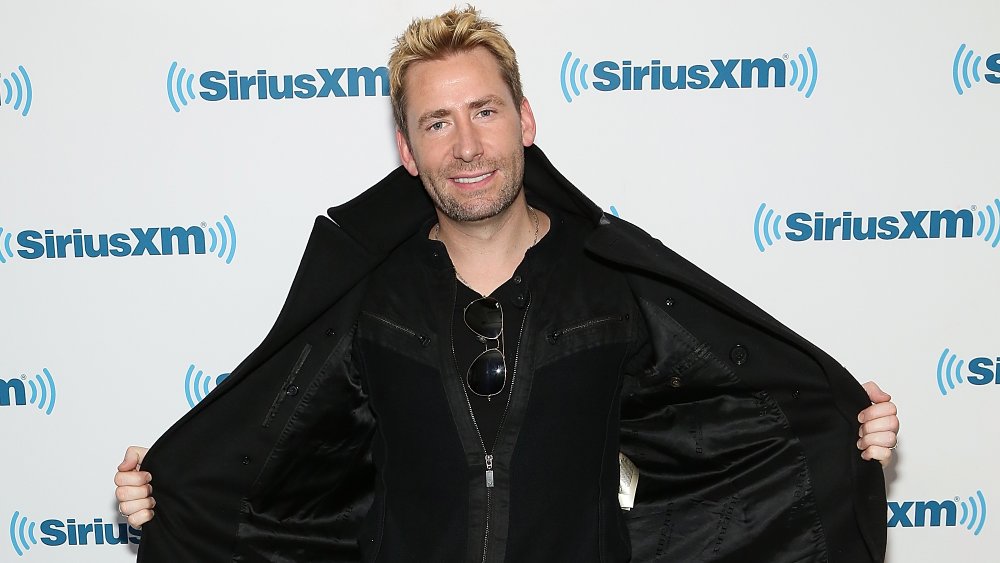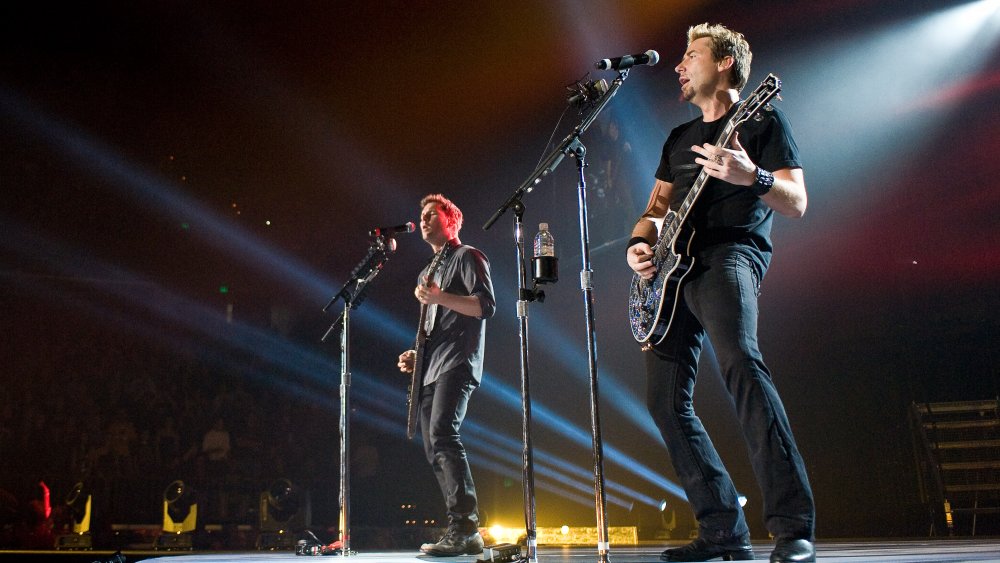The Reason People Hate Nickelback So Much, According To Research
In an attempt to dissuade the people of Kensington from drunk driving, the local police decided to threaten them with drastic measures. In a Facebook post, as quoted by the BBC, they wrote "And when we catch you, and we will catch you, on top of a hefty fine, a criminal charge and a year's driving suspension we will also provide you with a bonus gift of playing the offices [sic] copy of Nickelback in the cruiser on the way to jail... So please, lets not ruin a perfectly good unopened copy of Nickelback. You don't drink and drive and we won't make you listen to it." As expected, people found this highly amusing. After all, everyone hates Nickelback.
The direct, personal hatred of the Canadian band Nickelback is one of those aspects of popular culture that seem to simply exist. Of course someone created a browser plugin called Nickelblock that eliminates "all mention of Alberta's finest swamp heshers from your web browser"!
In March, Nico Lang attempted to articulate on the Daily Dot why so much vitriol was still directed towards a band that hadn't had a hit since 2006. His main takeaway from his reexamination was that there were two strikes against the band. First, their music carries the same turgid songs throughout, always sounding like a reference to another band. Second, they seem perfectly calculated to appeal to soccer moms who aspire to appear edgy.
Authentic hatred of inauthenticity
These reasons, however justified they may be, don't fully examine the nature of the backlash. They don't address, for example, why people should hate a band for being liked by soccer moms. In 2016, however, Salli Anttonen, a student at The University of Eastern Finland, poured through years of Finnish reviews, which hated Nickelback as much as everyone else, to synthesize the reasons for the anger in a paper titled "Hypocritical Bullsh*t Performed Through Gritted Teeth: Authenticity Discourses in Nickelback's Album Reviews in Finnish Media."
As the title suggests, the crux of the discourse was that in the wake of grunge music and all the baggage of authenticity that came with it, Nickelback was perceived to be an essentially inauthentic band. "Nickelback provokes anger" Anttonen concludes "because of what it is not — honest, self-expressing, anti-commercial, and dangerous — what music should be." In addition to this, she also addresses the intrinsic ridiculousness of this complaint. A band is a corporate enterprise and while Nickelback are duller than most, all their inauthenticity does is to show that music performances are performances What people really want is a pretense of pure authenticity that doesn't come off as a pose. "I would argue," Anttonen continues "that, by nullifying Nickelback's authenticity, critics are in fact authenticating themselves. If critics gave up on authenticity, they merge with the mainstream, thus losing their counter cultural capital." So the violent disapproval of Nickelback is an inauthentic pose.
Why do you get wound up about this thing?
One question remains however, namely how does Nickelback feel about being so publicly hated. In July, Talk is Jericho, the interview podcast hosted by pro wrestler and singer of Fozzy Chris Jericho, interviewed Nickelback. Of course, the topic of being Nickelback, the oft mocked Nickelback, came up.
"I think," Chad Kroeger said when asked about how Nickelback dealt with their critical reception, "we actually used to pay a little bit of attention to that, and we just kind of accepted it's, like, nope, we are never going to be one of those bands, we are never going to be the critic's darlings, and we're okay with that." Considering their success, which beats most bands that have ever existed, this seems like a decent tradeoff for them.
He compared the hatred to the disco hate of the seventies: "I was just, like, 'Just don't listen to it.' You listen to what you like and you with what you like, and I don't get too wound up about it. So when that happens, I try to get inside their heads as to why people get so wound up about it. There's a choice — why do you get wound up about this thing?" The main drive for these haters is, like the critics in Anttonen's essay, the sense of community that forms around the share hatred of the band. So, perhaps Nickelback's greatest gift to society is its service as our scapegoat.


